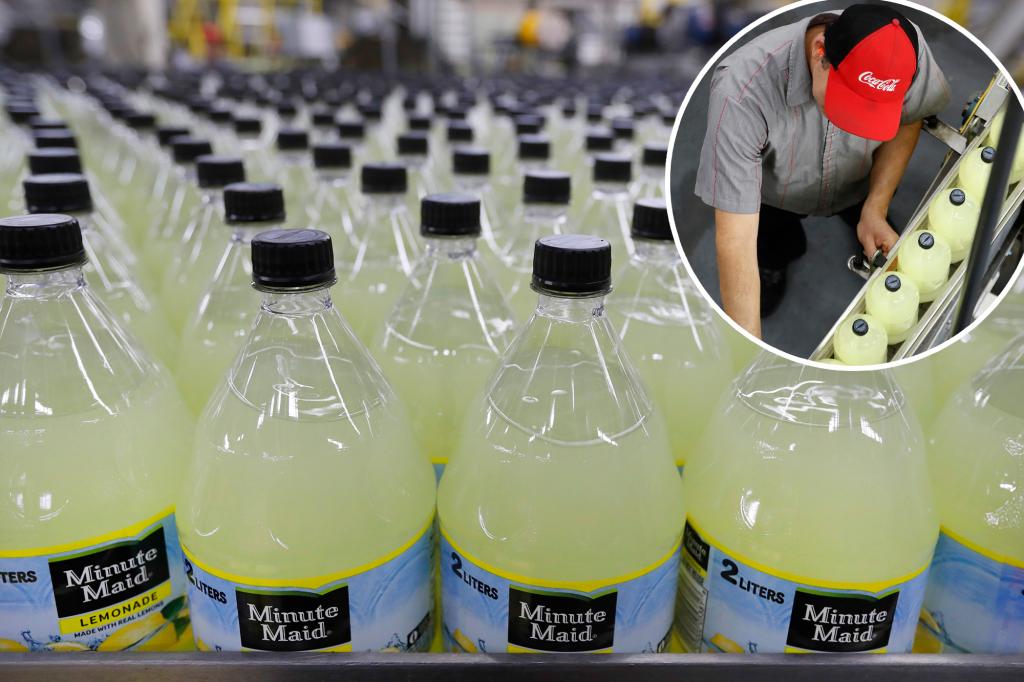In a recent development, Coca-Cola has issued a recall for its Minute Maid Zero Sugar Lemonade after it was found to contain sugar. This mislabeling poses a health risk, particularly for individuals with conditions such as diabetes, as the drinks contain 40 grams of sugar per 12-ounce can. The recall, affecting 13,152 cases of the product, was initiated on September 10, 2024 in Indiana, Kentucky, and Ohio. The affected products were incorrectly packaged in cartons labeled as zero sugar when they actually contained regular lemonade with sugar.
The FDA has classified the recall as Class II, indicating a health hazard situation with a remote probability of adverse health consequences from using the product. The affected drinks can be identified by the codes FEB1725CNA or FEB1725CNB, with a UPC code of 0 25000 12115 9. Coca-Cola has assured customers that the affected products are no longer on the market and has advised them to either dispose of them or return them for a full refund. This incident sheds light on a rising trend in food recalls, with mislabeling becoming an increasingly prevalent issue.
According to regulatory compliance company Trace One, the total number of food recalls increased by 20% between 2020 and 2023. Allergen contamination was identified as the primary reason for recalls, accounting for 40% of cases, while mislabeling ranked as the fourth most common cause with less than 10% of recalls. This incident serves as a reminder of the importance of accurate labeling in the food and beverage industry to ensure consumer safety and maintain trust in brands. Companies must adhere to strict quality control measures to prevent similar incidents in the future and protect the health of their customers.
The Minute Maid Zero Sugar Lemonade recall by Coca-Cola highlights the potential risks associated with mislabeled products and the impact they can have on consumers, particularly those with health conditions that require strict dietary restrictions. Coca-Cola’s prompt action in recalling the affected products and offering refunds demonstrates a commitment to consumer safety and transparency. Moving forward, it is crucial for companies to implement rigorous quality control processes to prevent mislabeling errors and protect the well-being of their customers.
Consumers are advised to check product labels carefully and be aware of any potential mislabeling issues that may arise in the food and beverage industry. In the event of a recall, customers should follow the recommendations provided by the company to ensure their safety. The Minute Maid Zero Sugar Lemonade recall serves as a cautionary tale for food and beverage manufacturers, emphasizing the importance of accurate labeling to avoid potential health risks and maintain consumer trust. By prioritizing quality control measures and regulatory compliance, companies can mitigate the risk of mislabeling errors and protect the health of their customers.
In conclusion, the recall of Coca-Cola’s Minute Maid Zero Sugar Lemonade underscores the significance of accurate labeling and quality control in the food and beverage industry. Mislabeling errors can have serious consequences for consumers, especially those with health conditions that require dietary restrictions. As the number of food recalls continues to rise, companies must prioritize compliance with regulations and implement robust quality control measures to prevent similar incidents. By taking proactive steps to ensure product accuracy and safety, companies can uphold consumer trust and safeguard the health of their customers.


